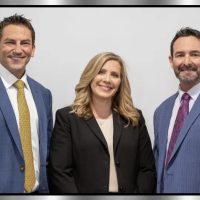Business Fraud: Publishers Clearing House Required to Pay $18.5m to Consumers

Most generations above millennials are probably familiar with Publishers Clearing House (PCH). Famous for mailers with a message that “You May Have Already Won” millions of dollars presented in a way that looks like you actually won millions of dollars, PCH is not new to the deception game. However, this time, it will cost them. According to the Federal Trade Commission, PCH has agreed to a proposed court order that will require it to pay $18.5 million to consumers who spent money and wasted their time on its website, and also make substantial changes to how it conducts business online:
In a complaint against PCH, the FTC charges that the company uses “dark patterns” to mislead consumers about how to enter the company’s well-known sweepstakes drawings and made them believe that a purchase is necessary to win or would increase their chances of winning, and that their sweepstakes entries are incomplete even when they are not. The FTC also charges that the company has added surprise shipping and handling fees to the costs of products, misrepresented that ordering is “risk free,” used deceptive emails as part of its marketing campaign, and misrepresented its policies on selling users’ personal data to third parties prior to January 2019. Many consumers affected by these practices are older and lower-income.
The FTC charges that PCH used dark patterns—manipulative phrasing and website design—to convince consumers that they needed to buy a product of some kind to enter the company’s sweepstakes or increase their chances of winning.
According to the complaint, the deception starts from the company’s homepage, where consumers complete an “Official Entry Form” with a large button with phrasing like “WIN IT!” or “Win for Life!” This form, however, does not enter them in the sweepstakes.
Instead, the complaint charges, consumers enter an arduous journey through pages of advertisements and sales pitches before they can actually enter the sweepstakes. The advertisements allegedly use tricky wording that conflates ordering and entering to lead consumers to believe they must make a purchase to enter, or that purchasing will increase their chances of winning a sweepstakes, neither of which is true.
Once consumers have navigated through the pages to reach the actual entry form and complete their entry, though, the complaint charges that PCH begins sending emails making them believe that they must complete a “final” or “last” step to complete their entry.
The FTC alleges that while the emails often make it seem as though consumers must immediately click to ensure they can enter the sweepstakes, when consumers click on the links in these emails to finalize their entry, they instead re-enter the cycle of pages and pages of dark patterns and deceptive sales pitches. The pages they land on have all-caps messages like “$1,000 per week for life AT STAKE!” and “JUST ONE ORDER IS ALL IT TAKES.”
PCH agreed to settle the FTC’s charges that it violated the FTC Act and CAN-SPAM Act, and a proposed court order would require the company to turn over $18.5 million to the FTC to be used to refund consumers and make a number of key changes to its email and internet operations.
Read the full story here.
